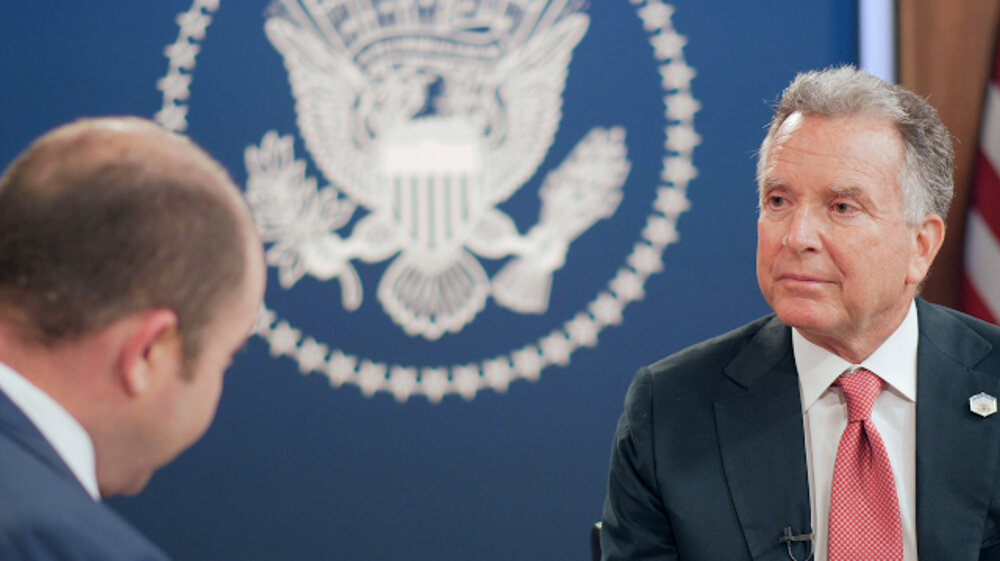Witkoff dims prospects for nuclear agreement as he demands concessions on Iran’s red lines

TEHRAN – President Donald Trump’s special West Asia envoy Steve Witkoff dampened hopes for a potential breakthrough in indirect nuclear talks between Tehran and Washington ahead of a fourth round of the discussions, as he told a U.S. news outlet that Iran should “dismantle” its uranium enrichment facilities and ship the material “far away”.
The remarks shocked observers who had begun to believe that Trump might be serious about reaching a deal with Iran after he unraveled the original one in 2018, as his administration’s participation in the negotiations came after Tehran clearly announced it would never dismantle its nuclear facilities or stop uranium enrichment, a position it has consistently maintained over the past few decades.
In an interview published on Friday, Witkoff stated that an enrichment program “can never exist in the state of Iran ever again.”
“That’s our red line. No enrichment. That means dismantlement, it means no weaponization, and it means that Natanz, Fordow, and Isfahan, those are their three enrichment facilities, have to be dismantled,” he said.
Witkoff added he thinks Iranians “have no choice” but to accept the position of Trump against enrichment. “Obviously, they can say no, and they can test President Trump, but I think that would be an unwise thing to do.”
Americans have been trying to cast Iran’s decision to enter negotiations as a direct consequence of the raucous threats leveled against it in the past months. Since returning to the White House in January, Trump has said multiple times that he would ‘bomb’ Iran if the country does not agree to sign a new nuclear deal under his terms.
As previously revealed by the Tehran Times, however, Tehran agreed to engage in talks after Trump said in a March letter to the Leader of the Islamic Revolution, Ayatollah Seyyed Ali Khamenei, that he would respect Iran’s red lines if it sat at the negotiating table. Apart from the fact that it would never dismantle its nuclear program, Iran has said throughout the years that it would not consider limiting its military capabilities or altering its foreign policy either.
Ayatollah Khamenei had said before the Omani-mediated talks began in April that he does not believe in the American side’s sincerity, citing Trump’s withdrawal from the JCPOA and his predecessor Barack Obama’s lack of commitment to the deal he himself signed in 2015.
A source familiar with the matter has told the Tehran Times that Iran suspected from the outset that the Trump administration's letter was merely a move intended to lure Iran into negotiations, so it could subsequently provide a justification for escalating pressure and potential aggression. Witkoff’s latest remarks have only reinforced that suspicion, the source added. A second source, however, said Iran has prepared for all scenarios.
Indirect U.S.-Iran nuclear talks have so far taken place in Muscat and Rome on April 12, 19, and 26, with both sides characterizing the discussions as “positive” and “advancing.” A fourth round was scheduled for May 3 in Muscat but was postponed and later scheduled for May 11.
Leave a Comment